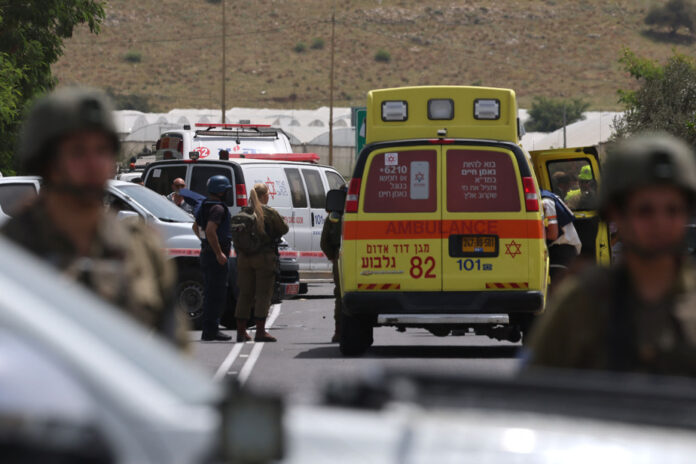(Tel Aviv) Israel announced on Friday evening the mobilization of reserve police and military reinforcements after the death of three people in two attacks, against the backdrop of a new escalation of tensions in the Middle East.
Friday evening, a man of about thirty years old was killed in a car attack on the Tel Aviv seafront which also left five injured.
The emergency services presented the victims as “tourists”.
A nearby police officer and city officers shot the driver when they approached and realized he was looking for a weapon, police said.
After the attack, which occurred on a Sabbath evening and during Passover week, Israeli Prime Minister Binyamin Netanyahu “ordered the Israeli police to mobilize all reserve border police units, and to [ army] to mobilize additional forces to deal with terrorist attacks,” according to his office.
Earlier, two sisters from the Israeli settlement of Efrat, aged sixteen and twenty, were killed and their mother seriously injured in an attack in the West Bank.
The two sisters, of Israeli and British nationalities, were victims of Palestinian fire on their vehicle in the northeast of this Palestinian territory occupied by Israel since 1967.
Before dawn, Israel had carried out military strikes in Gaza and southern Lebanon against positions of the Palestinian Islamist movement Hamas, in response to the firing of dozens of rockets the day before on its territory.
This new outbreak of fever follows the brutal irruption of Israeli forces and violence on Wednesday in the Al-Aqsa mosque in Jerusalem, the third holiest site in Islam, which led to a wave of international condemnations while Hamas, in power in the Gaza Strip, denounced an “unprecedented crime” by Israel, in the middle of Ramadan.
Netanyahu said Israeli forces were “forced to act to restore order” in the face of “extremists” barricaded in the mosque.
Without claiming it, the Islamic Jihad, another Palestinian armed group, called the Tel Aviv attack “a natural and legitimate response to the crimes and attacks of the occupation (Israel, editor’s note) against our people and our holy places” .
In Lebanon, the Israeli army claimed to have struck three Hamas “infrastructures” in the Rashidye area, where there is a Palestinian refugee camp, near Tyre.
Thursday, in an unprecedented escalation on the Israeli-Lebanese front since 2006, around 30 rockets were fired from Lebanon towards Israel, injuring one person and causing material damage.
The Israeli army claimed that the unclaimed shots were “Palestinian”, and most likely Hamas.
Mr. Netanyahu promised to make Israel’s “enemies” pay “a full price” for “every aggression”.
“Threats and intimidation from Zionist leaders will lead nowhere,” reacted Friday Naïm Qassem, number two of the Shiite Hezbollah movement, de facto master of southern Lebanon.
On Friday, the Israeli army said it shot down a drone that entered its territory from Lebanon, without further details.
Israel and Lebanon are technically in a state of war after different conflicts and the ceasefire line is controlled by the United Nations Interim Force (UNIFIL), deployed in southern Lebanon.
According to UNIFIL, “both sides have said they don’t want a war.”
The Lebanese army announced on Friday that it had dismantled, in the south, a new launching pad for rockets likely to be fired at Israel and Beirut assured that it wanted to preserve “calm” there.
Hamas has warned that it holds Israel “fully responsible for the consequences” of the strikes.
The Israeli army said it had carried out several airstrikes in Gaza, targeting ten targets of Hamas, which has ruled there since 2007. The local health ministry reported “damage” to the al-Dorra pediatric hospital (in east of Gaza City).
“Targets near” the hospital were targeted, an Israeli military spokesman told AFP, but “to our knowledge, there was no damage or direct impact to the hospital”.
In response to the raids, several dozen missiles were fired from the micro-territory under Israeli blockade. Only one hit an Israeli urban area, damaging a house, according to the army.
Qatar, which has in the past mediated between Israel and Hamas, is “working towards de-escalation” to “prevent unnecessary carnage and avoid destructive consequences for Palestinians and civilian populations”, the AFP a Qatari official, on condition of anonymity.


















